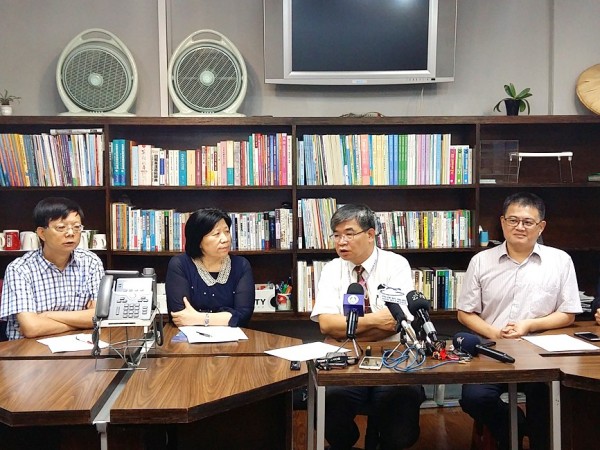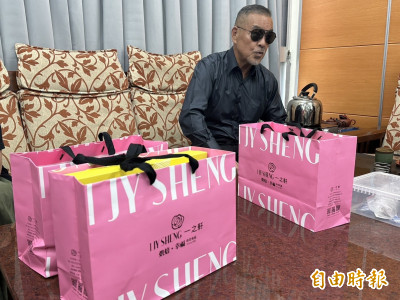《TAIPEI TIMES 焦點》 Dress rule eased at senior high, vocational schools

Deputy Minister of Education Tsai Ching-hwa, second right, speaks at a news conference in Taipei yesterday. Photo: CNA
By Sean Lin / Staff reporter
The Ministry of Education yesterday relaxed the rules on school uniforms at senior high and vocational high schools, allowing students to wear a variety of school-approved apparel, including casual, sports clothes and sports club jerseys.
The move was the result of a series of meetings between school administrators, teachers and students, and is to take effect at the beginning of the new semester, the ministry said.
The requirement that students must wear their school’s uniforms has been a source of contention between schools and students and sparked a wave of protests earlier this year.
Various types of apparel can be approved as school uniforms as long as they are clearly defined following open discussions, and students will be granted the liberty to mix and match to their liking, Deputy Minister of Education Tsai Ching-hwa (蔡清華) said.
For example, students will be allowed to wear a regular shirt with slacks used in physical education classes, he said.
Students will be allowed to wear casual apparel to school on holidays or during vacation, and casual coats over their uniforms when it is cold, although students who do so would be required to show their student identification cards when entering school grounds, he said.
However, students will be required to wear clothes in situations where their safety might be at risk and on formal occasions, Tsai said.
For example, students should wear laboratory coats when performing scientific experiments and sports uniforms and sneakers to physical education classes, he said.
Students will also be required to wear their regular uniforms during school conventions, he said.
For the sake of their safety, students must not wear slippers or walk barefoot on campus, he added.
Tsai said schools will be barred from giving students demerits should they break the rules by wearing clothes other than those approved by their schools; instead, such students should be given “guidance,” such as asking them to perform community services, write letters of repentances or put them in detention, he said.
Asked how the ministry would respond if private high schools refuse to comply with the rules, Tsai said they should not give students demerits if students break their dress codes, adding that the ministry will call a meeting with private schools to urge them to follow the new rules.
The ministry will ask local education authorities to meet with junior-high and elementary school officials to discuss introducing similar rules, he said.
National Chengchi University professor Chuang Kuo-jung (莊國榮), who helped design the rules, said that although the ministry has not set any rules governing what shoes students should wear, schools should not be stringent in this category, so that they would not defeat the purpose of the change, which is to encourage innovation and transition.
Chuang said that schools can fine-tune the rules to make them more lenient — for example by implementing a “casual Wednesday” — but added that the rules must not be tightened.
新聞來源:TAIPEI TIMES

















